Upcoming Programs
HĀ – BREATH
Nā Hopena Aʻo
Lifelong Learner Outcomes with Connections to ʻĀina-Based Education
Strengthened Sense of Belonging
He pili wehena ʻole
A relationship that cannot be undone
I stand firm in my space with a strong foundation of relationships. A sense of Belonging is demonstrated through an understanding of lineage and place and a connection to past, present, and future. I am able to interact respectfully for the betterment of self and others.
“I am this land and this land is me.” A strong sense of personal and collective awareness and appreciation for our island home and the diversity of life found here is essential to ʻāina-based education.
Strengthened Sense of Responsibility
Ma ka hana ka ʻike, ma ka ʻimi ka loaʻa
In working one learns, through initiative one acquires
I willingly carry my responsibility for self, family, community and the larger society. A sense of Responsibility is demonstrated by a commitment and concern for others. I am mindful of the values, needs and welfare of others.
“Know your place as human in this environment.” Utilization of environmental resources is accompanied by a kuleana, or responsibility, to care for these resources. A deeper sense of personal and moral responsibility to our island home and “the ability to make ecologically sensitive lifestyle and behavior choices” is cultivated through ʻāina-based education.
Strengthened Sense of Excellence
ʻAʻohe ʻulu e loaʻa i ka pōkole o ka lou
There is no success without preparation
I believe I can succeed in school and life and am inspired to care about the quality of my work. A sense of Excellence is demonstrated by a love of learning and the pursuit of skills, knowledge and behaviors to reach my potential. I am able to take intellectual risks and strive beyond what is expected.
Participation in community-focused stewardship activities through environmental restoration projects addressing relevant issues allow students to develop 21st century skills including critical thinking, communication, teamwork, and problem-solving while contributing to the well-being of both community and ʻāina.
Strengthened Sense of Aloha
E ʻōpū aliʻi
Have the heart of a chief
I show care and respect for myself, families, and communities. A sense of Aloha is demonstrated through empathy and appreciation for the symbiotic relationship between all. I am able to build trust and lead for the good of the whole.
Aloha ʻāina, reverence for our land and environmental resources, is instilled through ʻāina-based education. Students develop attitudes and values that motivate them to engage in environmental stewardship.
Strengthened Sense of Total Well-Being
Ua ola loko i ke aloha
Love is imperative to one’s mental and physical welfare
I learn about and practice a healthy lifestyle. A sense of Total Well-Being is demonstrated by making choices that improve the mind, body, heart and spirit. I am able to meet the demands of school and life while contributing to the wellbeing of family, ‘āina, community and world.
“Survival is knowing there is a hierarchy.” Through ʻāina-based education students experience natural systems and cycles first-hand, developing a knowledge and understanding of their function and our interconnection and dependency upon them. The well-being of our community is determined and reflected by the well-being of our ʻāina.
Strengthened Sense of Hawai‘i
ʻO Hawaiʻi kuʻu ʻāina kilohana
Hawaiʻi is my prized place
I am enriched by the uniqueness of this prized place. A sense of Hawai‘i is demonstrated through an appreciation for its rich history, diversity and indigenous language and culture. I am able to navigate effectively across cultures and communities and be a steward of the homeland.
“You belong to the cycle of this island, these islands.” ‘Āina-based education culminates in environmentally literate students, teachers, and eventually communities. An environmentally literate person is an “informed, lifelong learner who values Hawai‘i’s uniqueness, practices environmental stewardship, and lives sustainably.”
Ke Kumu ʻĀina offers a variety of student and teacher programs and services year-round, including:
During-School Programs
- Farm to Forest Program will be offered during the 2017–2018 and 2018–2019 school years to four middle schools in the moku of Kohala. At each school, two teachers and their classes will be supported to learn science in a meaningful way while contributing to the restoration of degraded landscapes in their watershed through the propagation, outplanting, and monitoring of native forest plants. We are currently recruiting schools and plan to launch this program in September.
- ʻĀina-Based Education Support for Teachers and Schools – We collaborate with teachers and schools interested in standards-based education through ʻāina and offer support with ʻāina-engagement (field) trips, classroom presentations, and teacher education programs.
Intersession Programs
- Intersession Programs give middle and high school students opportunities to learn through ʻāina during the fall, spring, and summer intersessions. Participants engage in scientific field research, learn to identify native plants, and explore the environments in which they grow. Based out of Waimea, students enjoy hands-on workshops and field trips from uka to kai in the Kohala Watershed.
- Leadership Program – We employ high school students interested in ʻāina-based education as Alakaʻi ʻŌpio (Youth Leaders) for our student programs. As a part of the position, students develop leadership capacity, supporting teaching staff with program logistics and even leading mini-workshops for middle school students.
Interested in more information or getting involved? Please contact our ʻāina-based education specialist, Mahina Patterson, by email at mpatterson@kohalacenter.org or phone at 808-887-6411.
Resources Cited
Barnes, Joel. “Awareness to Action: the journey toward a deeper ecological literacy.” The Journal of Sustainability Education(2013): n. pag. Web. 10 Aug. 2017.
Hawaii Environmental Literacy Plan. Hawaii Environmental Education Alliance, 2015. Print.
Kaimipono Kaiwi, Monica A., and Walter Kahumoku, III. “Makawalu: Standards, Curriculum, and Assessment for Literature through an Indigenous Perspective.” Hūlili: Multidisciplinary Research on Hawaiian Well-Being Vol. 3 No.1 (2006): 183-206. Web. 10 Aug. 2017.
Kana‘iaupuni, S. M., Ledward, B., and Keohokalole, K. “New Research on the impact of cultural influences in education on Native Hawaiian student outcomes.” Asian Americans & Pacific Islanders Policy, Practice and Community 9(1–2) (2011): 221–229.
Kawakami, A. J., and Aton, K. K. “Ke a‘o Hawai‘i (Critical elements of Hawaiian learning): Perceptions of successful Hawaiian educators.” Pacific Educational Research Journal, 11(1) (2001): 53–66.
Ledward, Brandon C. “‘Āina-Based Learning is New Old Wisdom at Work.” Hūlili: Multidisciplinary Research on Hawaiian Well-Being Vol. 9 (2013): 35-48. Kamehameha Schools. Web. 10 Aug. 2017.
“Nā Hopena Aʻo.” Hā: Breath. Hawaii Department of Education, Nov. 2015. Web. 10 Aug. 2017.
Kanahele, Pualani. “I AM THIS LAND, AND THIS LAND IS ME.” Hūlili: Multidisciplinary Research on Hawaiian Well-Being Vol.2 No.1(2005): 21-31. Web. 10 Aug. 2017.
Pukui, Mary Kawena. Ōlelo Noeau: Hawaiian proverbs and poetical sayings. Honolulu (Hawaii): Bishop Museum Press, 1983. Print.

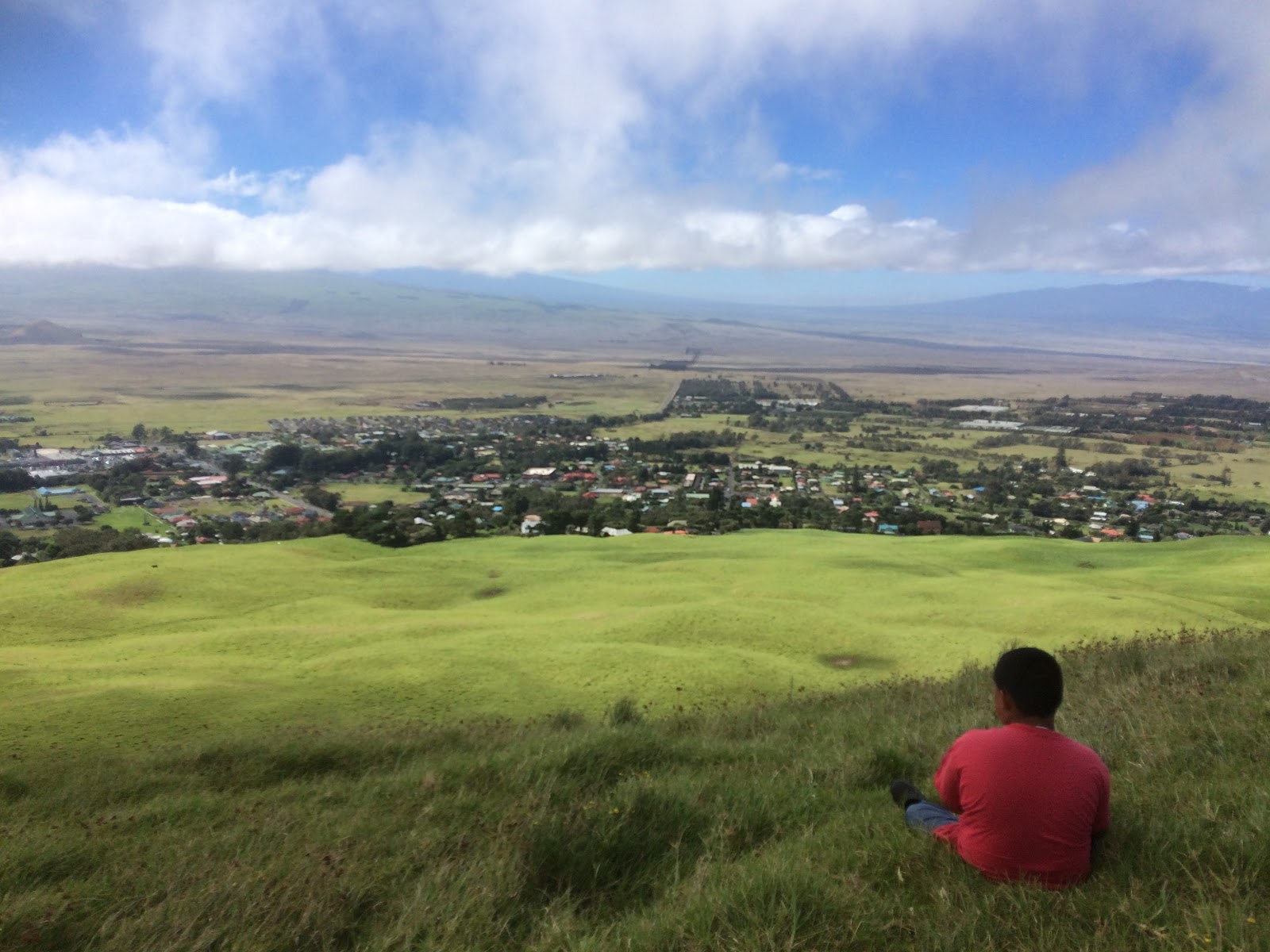
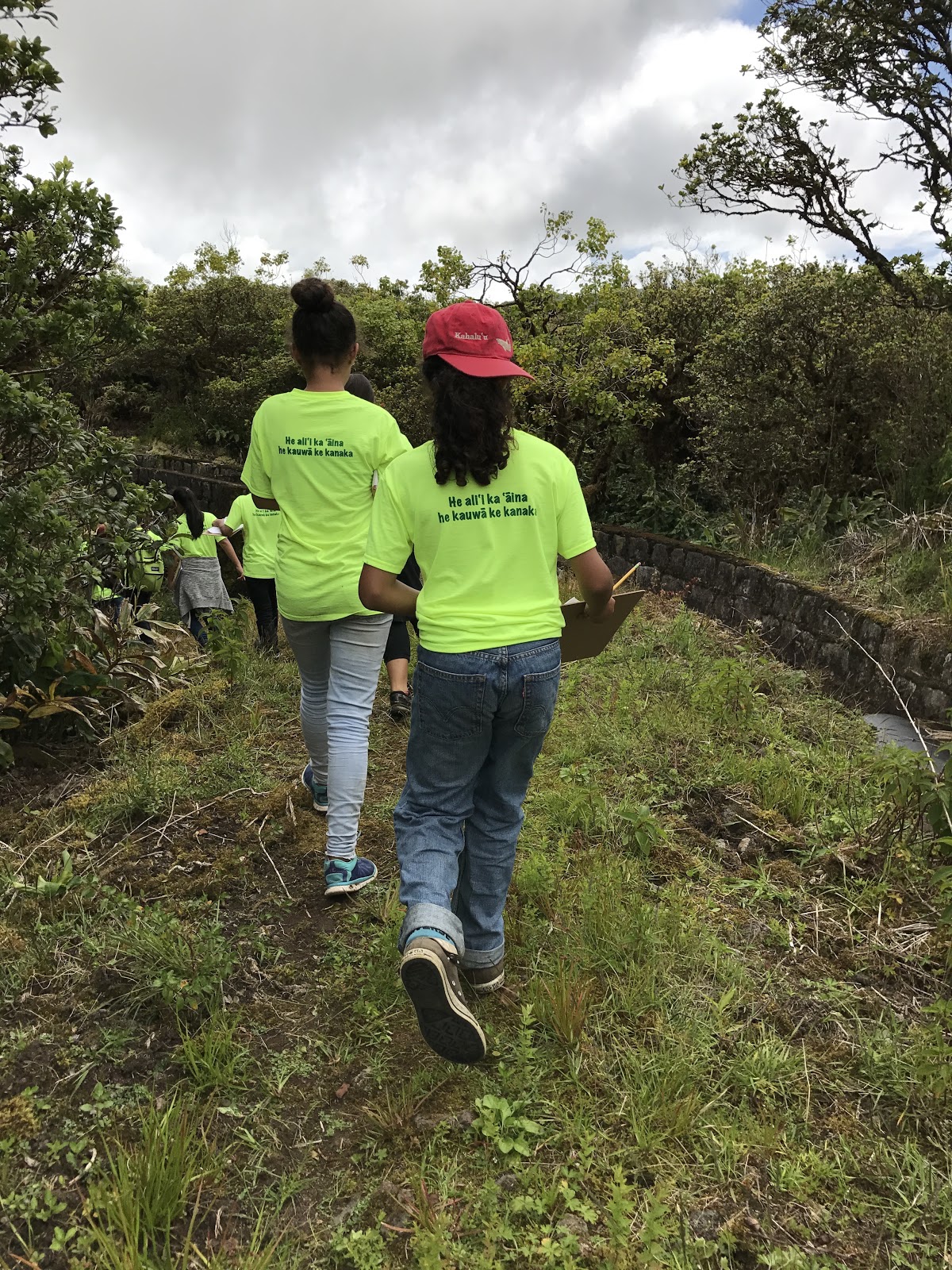
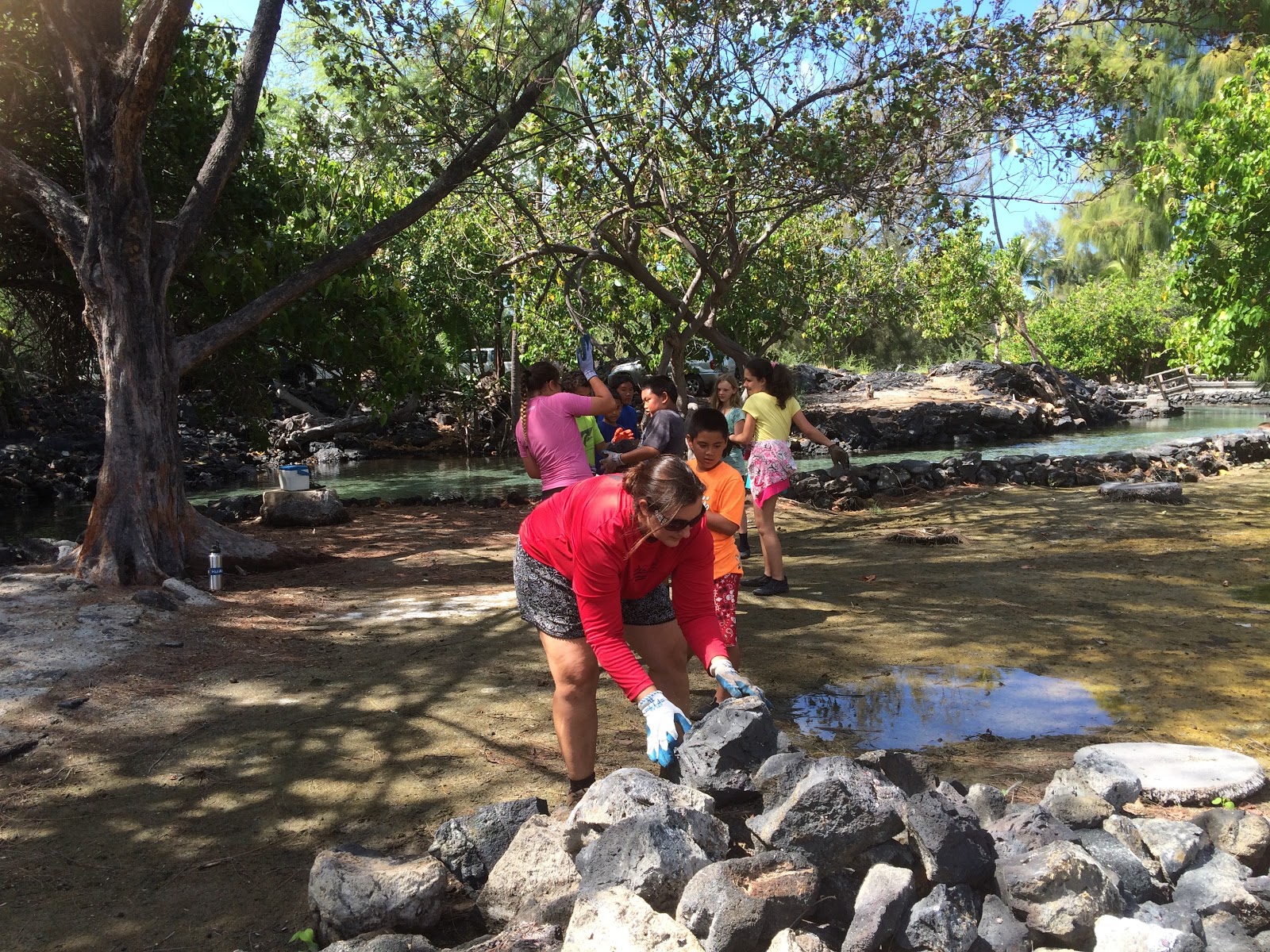
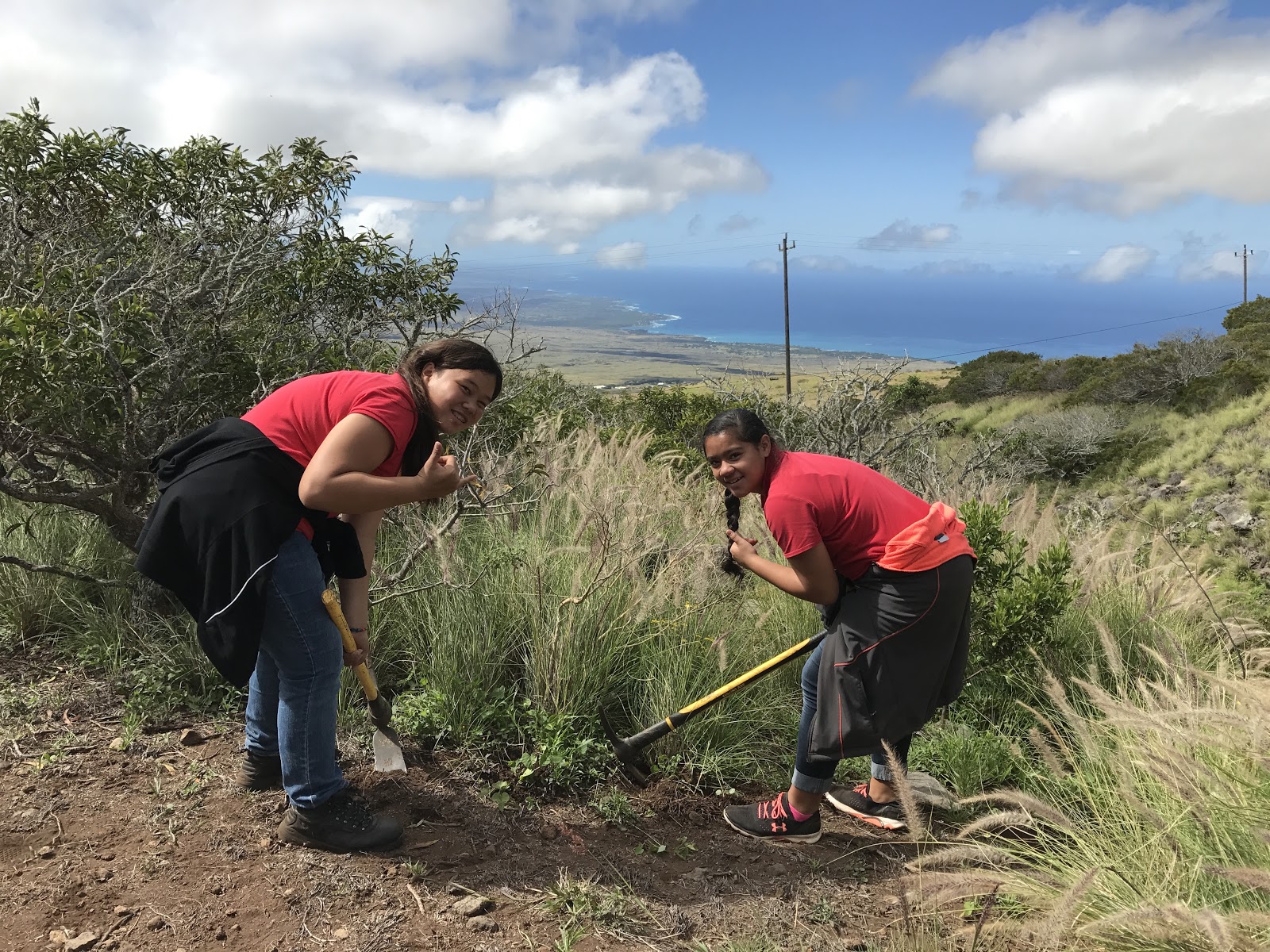

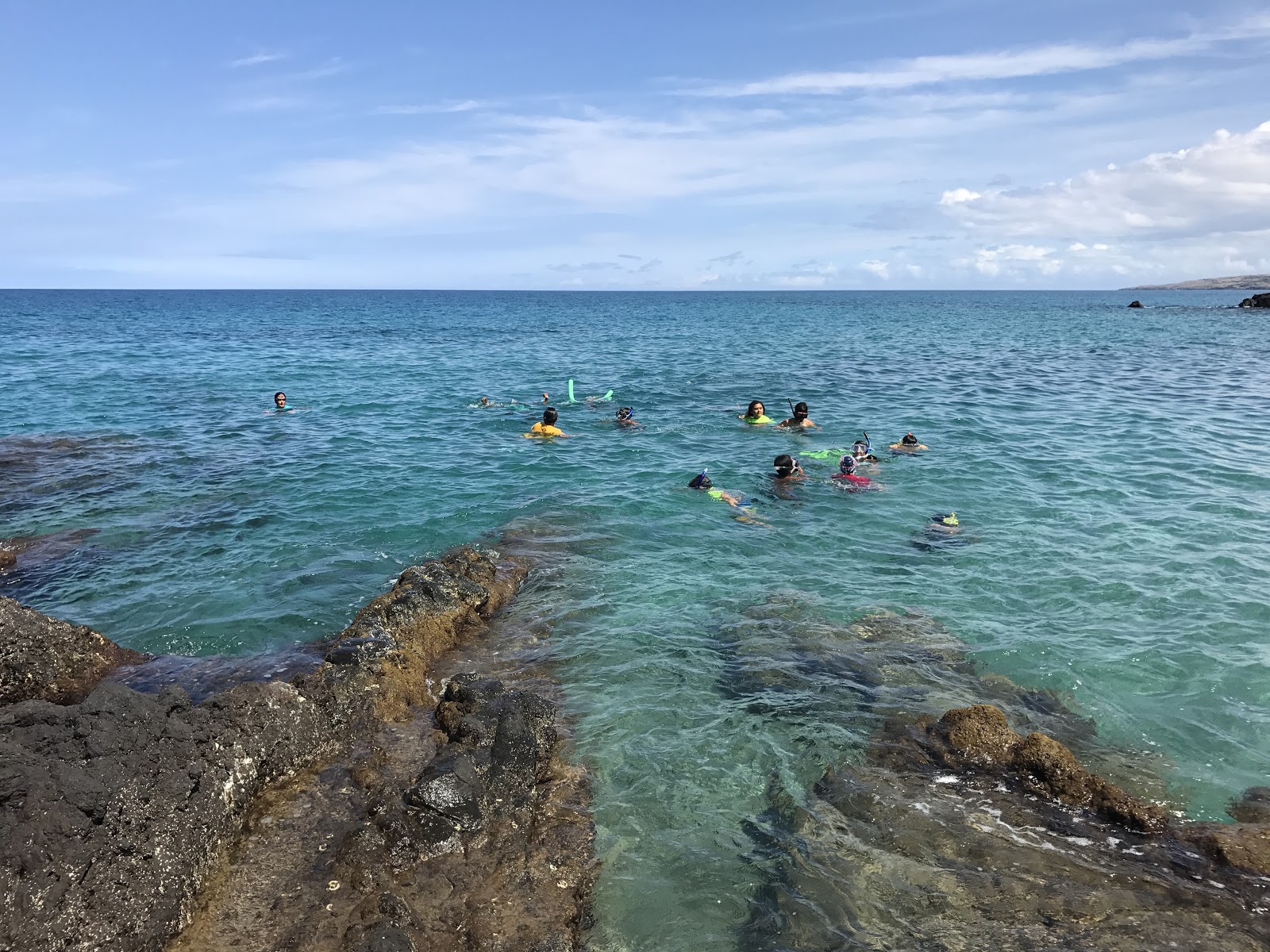
Hoa‘āina Stewardship Day: The Koaiʻa Corridor
/in Ke Kumu ‘Āina Past Events, Ke Kumu ‘Āina Upcoming Events /by admin(Kohala, Hawai‘i Island)
September 21, 2024—Community members of all ages are invited to join in our 2024 Hoa‘āina Stewardship Experiences! These guided, half-day learning journeys are designed to deepen our pilina (relationships) with Kohala’s natural and cultural landscape, create space for meaningful exchanges between place and people, and share in mālama ‘āina (care for the land) in this moku we call home.
(Kohala, Hawai‘i Island)
Hoa‘āina Stewardship Day: Niuli‘i
/in Ke Kumu ‘Āina Past Events, Ke Kumu ‘Āina Upcoming Events /by admin(Niuli‘i, Hawai‘i Island)
June 15, 2024—Community members of all ages are invited to join in our 2024 Hoa‘āina Stewardship Experiences! These guided, half-day learning journeys are designed to deepen our pilina (relationships) with Kohala’s natural and cultural landscape, create space for meaningful exchanges between place and people, and share in mālama ‘āina (care for the land) in this moku we call home.
(Niuli‘i, Hawai‘i Island)
Hoa‘āina Stewardship Day: Niuli‘i
/in Ke Kumu ‘Āina Past Events, Ke Kumu ‘Āina Upcoming Events /by admin(Niuli‘i, Hawai‘i Island)
May 18, 2024—Community members of all ages are invited to join in our 2024 Hoa‘āina Stewardship Experiences! These guided, half-day learning journeys are designed to deepen our pilina (relationships) with Kohala’s natural and cultural landscape, create space for meaningful exchanges between place and people, and share in mālama ‘āina (care for the land) in this moku we call home.
(Niuli‘i, Hawai‘i Island)
Hoa‘āina Stewardship Day: Niuli‘i
/in Ke Kumu ‘Āina Past Events, Ke Kumu ‘Āina Upcoming Events /by admin(Niuli‘i, Hawai‘i Island)
April 13, 2024—Community members of all ages are invited to join in our 2024 Hoa‘āina Stewardship Experiences! These guided, half-day learning journeys are designed to deepen our pilina (relationships) with Kohala’s natural and cultural landscape, create space for meaningful exchanges between place and people, and share in mālama ‘āina (care for the land) in this moku we call home.
(Niuli‘i, Hawai‘i Island)